
We kindly inform you that, as long as the subject affiliation of our 300.000+ articles is in progress, you might get unsufficient or no results on your third level or second level search. In this case, please broaden your search criteria.




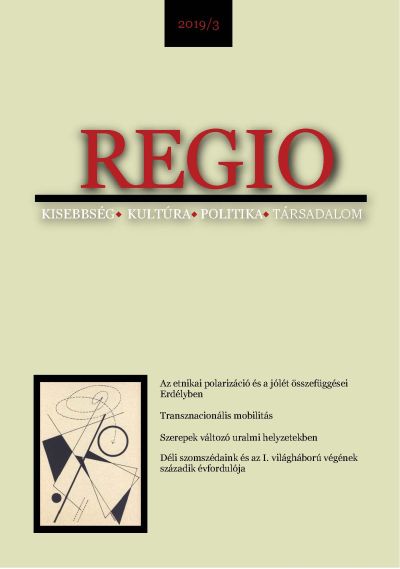
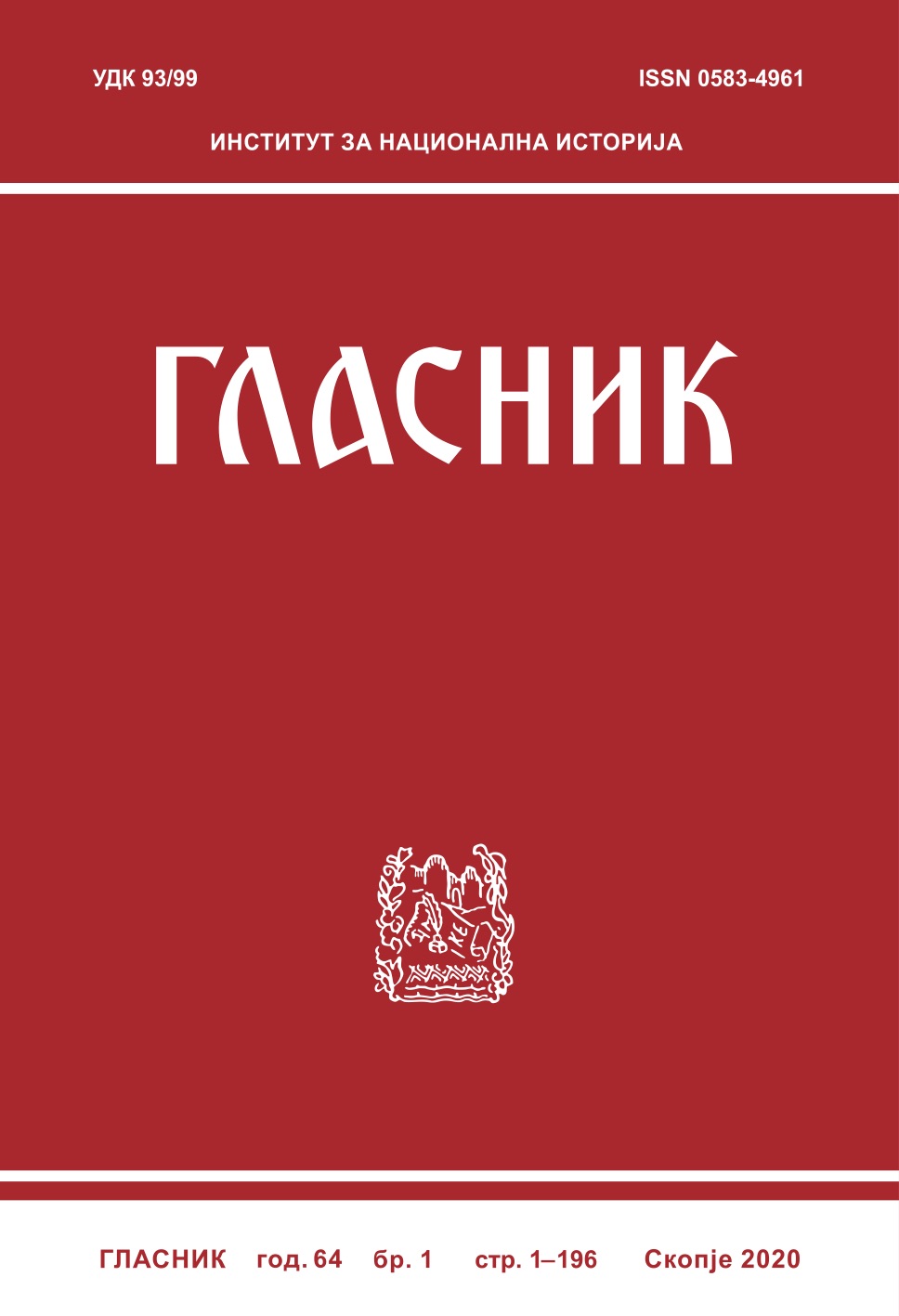
The subject of analyses of this paper will be the integration of Macedonians from Aegean part of Macedonia that in several waves in the course of 20th century settled in the Kingdom of Yugoslavia and then the Peoples Republic/Socialist Republic of Macedonia. Firstly, mainly in the region of Strumica, were settled part of the Macedonians that as result of the Balkan Wars left their homes in Greece – ‘bežanci’. Then, in couple of phases, from Greece were settled Macedonians during the Second World War, as well as during and after the Civil war in Greece – ‘egejci’. The main idea of the paper is to argue that besides the cultural closeness, the language and ethnic similarities, the social integration of the newcomers was rough, long and not an easy process. In this text are used data frоm the original research with direct participants of these events or their descendants.
More...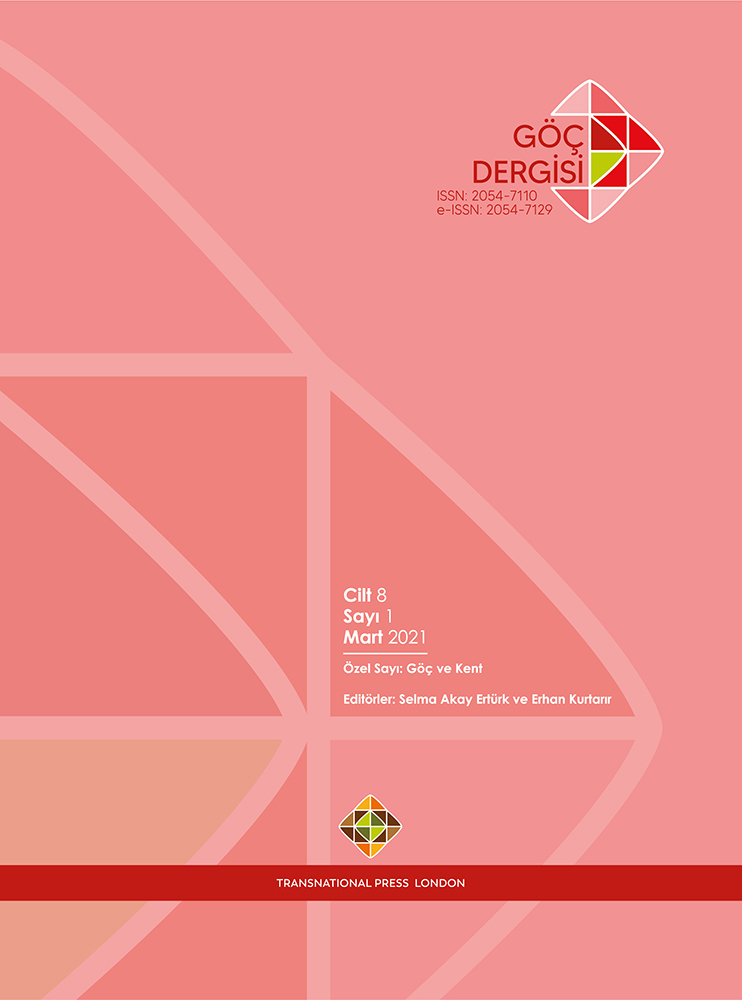
Migration is an important phenomenon that changes the population structure of the regions. The fact that individuals leave their familiar living environment and cultural environment and move to regions they are not accustomed to creates an impact on society. When evaluated in terms of society, many effects of migration are listed, directly or indirectly. For this reason, many studies have been conducted on the causes, results and direction of migration from the 19th century to the present. Regional migration data for Turkey in this study that investigated the impact of migration between provinces distribution based on economic and demographic variables were studied to determine. It is believed that spatial analysis makes more accurate determinations within the boundaries of the geographical area characterized by spatial connections. Therefore, spatial autoregressive, spatial error and spatial Durbin models were preferred and estimated by maximum likelihood (ML) method. According to the findings, the change in the labour force, infant mortality rate and the number of students in a province may have an effect on net migration. In addition, it was determined that the number of students affects the net migration figures in the neighbourhood of the province.
More...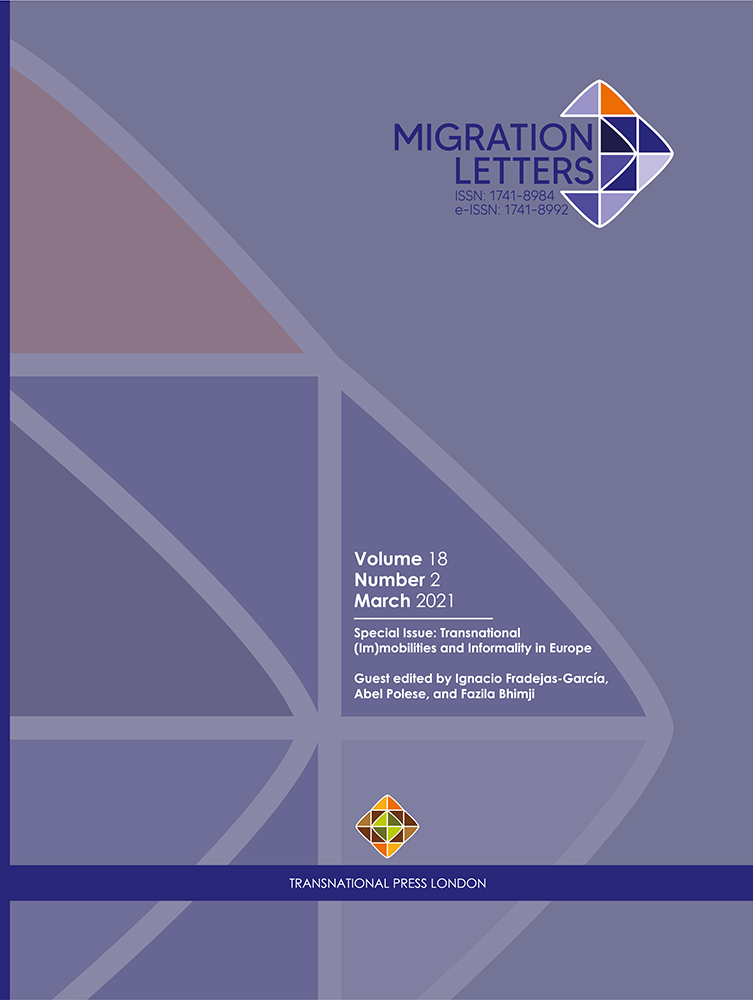
The article traces the ways in which refugees in precarious legal and economic circumstances in Lagers (refugee camps) in Germany participate in informal practices to reverse their displaced positions. More specifically, the paper demonstrates how refugees work in conjunction with a Berlin-based solidarity group in order to find access to informally organized housing outside of the formal bureaucratic state system. The study shows that refugees’ engagement with informal structures must be understood as struggles towards emplacement and formality. Much scholarship has discussed the economic aspects of informality in the global South and post-socialist countries. However, there is little discussion on how refugees may engage in informal practices within the nation-state in order to find emplacement and achieve formality. The article additionally demonstrates how informal acts are co-produced between citizens and refugees in the process of searching and offering of living places outside state defined formal systems. Thus, informality needs to be understood as resistance against displacement, struggles towards emplacement and formality. The study draws on ethnographic data and on-going participation in a Berlin-based grassroots group, Schlafplatzorga, which supports refugees on an informal level with temporary accommodation.
More...
This article unpacks the status and significance of informal social infrastructures within the Syrian Vulnerable Person’s Resettlement Scheme (SVPRS) in one region of the UK to offer a case study exemplifying an enduring and renewed political embeddedness of informalities as an idiosyncratically British way of governing migrant incorporation and producing social order. From the perspective of the scheme’s formal design, this was ‘bottom-up’, ‘community-led’ activity for community or ‘social’ integration. For refugees this was the existence and availability of a quality of sociality productive of a sense of existence and a viable and possible life, in other words, defining – above and beyond discrete domains or material things - what had been hoped for and expected from resettlement. Where this ‘informal social infrastructure’ was available, refugees conveyed an experience of positive processes of life, resonating with discussions of existential movement. Where unavailable refugees conveyed experience of a persistent or even worsened sense of biographical interruption that forced migration has been likened to. The article aims to contribute to informalities scholarship in relation to the imbrication of informal-formal as means of governance and attest to the significance of informalities to the reduction of uncertainty, production of stability, in other words means by which informalities help constitute and reproduce the social and cultural world. That the scheme includes any informal element is somewhat uncanny amidst a converging restrictive turn and considering formal rejection of laissez faire ‘multiculturalism’. The article concludes that experience of refugees in the absence of informal social infrastructures must not be read as a straightforward critique that might call for further formal components. Rather, it is a critique that emphasises the importance of informalities within formal design and analysis of the wider factors that hinder or promote their availability.
More...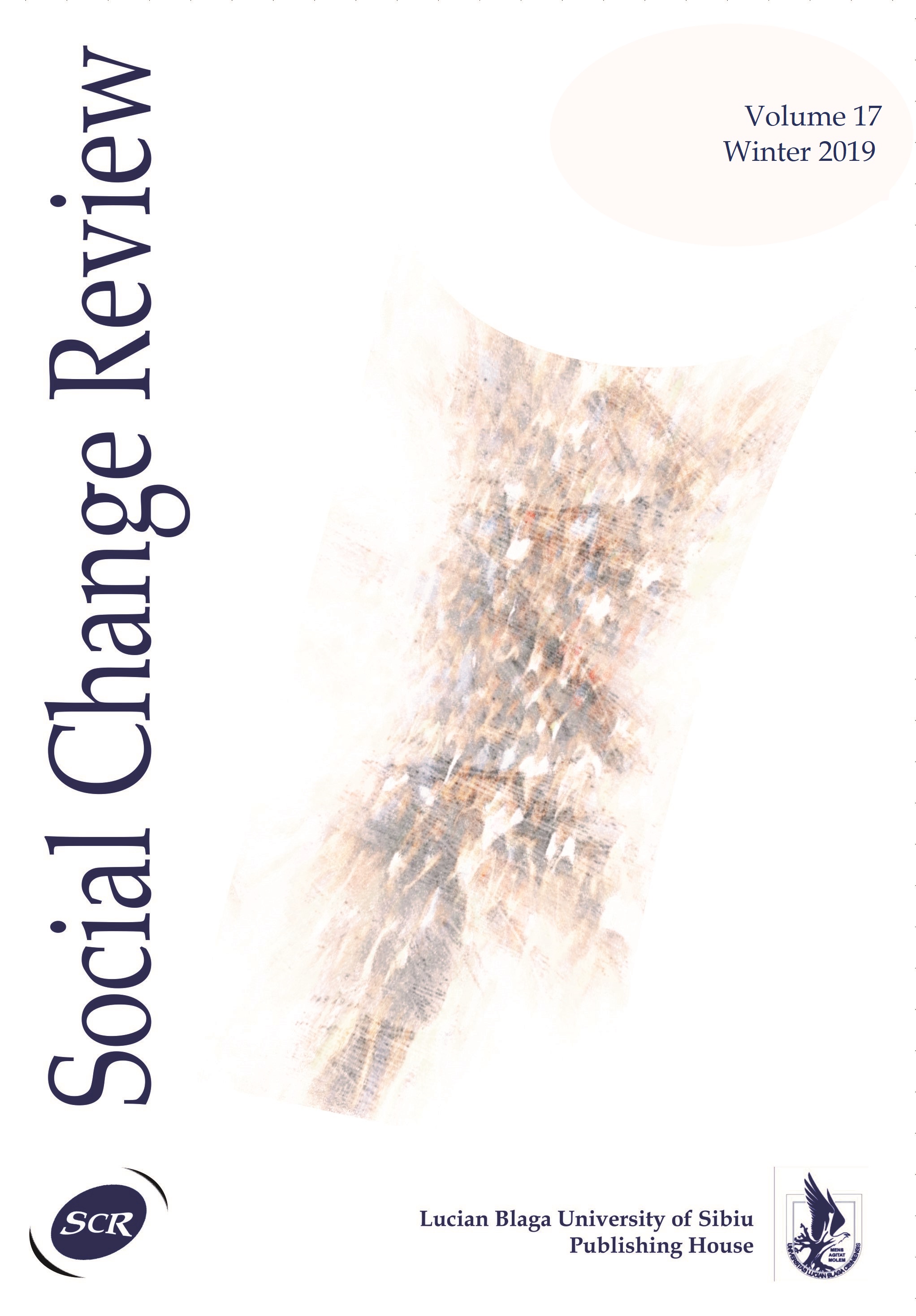
The article proposes a theoretical discussion at the crossroads of the return migration scholarship with the entrepreneurship research. Its main goal is to build an analytical framework in which entrepreneurial experiences of international return migrants are conceptualized. The fertile theoretical legacy within the study of entrepreneurship along with an idealized view of the positive effects of migration constitute essential premises for understanding the biased outputs of the empirical studies of entrepreneurship upon return to the origin country. Firstly, the article draws on the main lines of theorising opportunities within the Weberian and Schumpeterian theoretical traditions. Secondly, it points out how contemporary studies of entrepreneurship reinforced this perspective and placed great emphasis on individual agents able to benefit from opportunities within the return context. The final part of the paper illustrates several modalities in which scholars concerned with return migration were affected by the mythical image of the entrepreneur. As a corollary, necessity entrepreneurship is sporadically used in this niche of study and it usually has only a complementary role. The paper contributes to a deeper understanding of the challenges of transposing entrepreneurship’ theoretical insights into different empirical research designs.
More...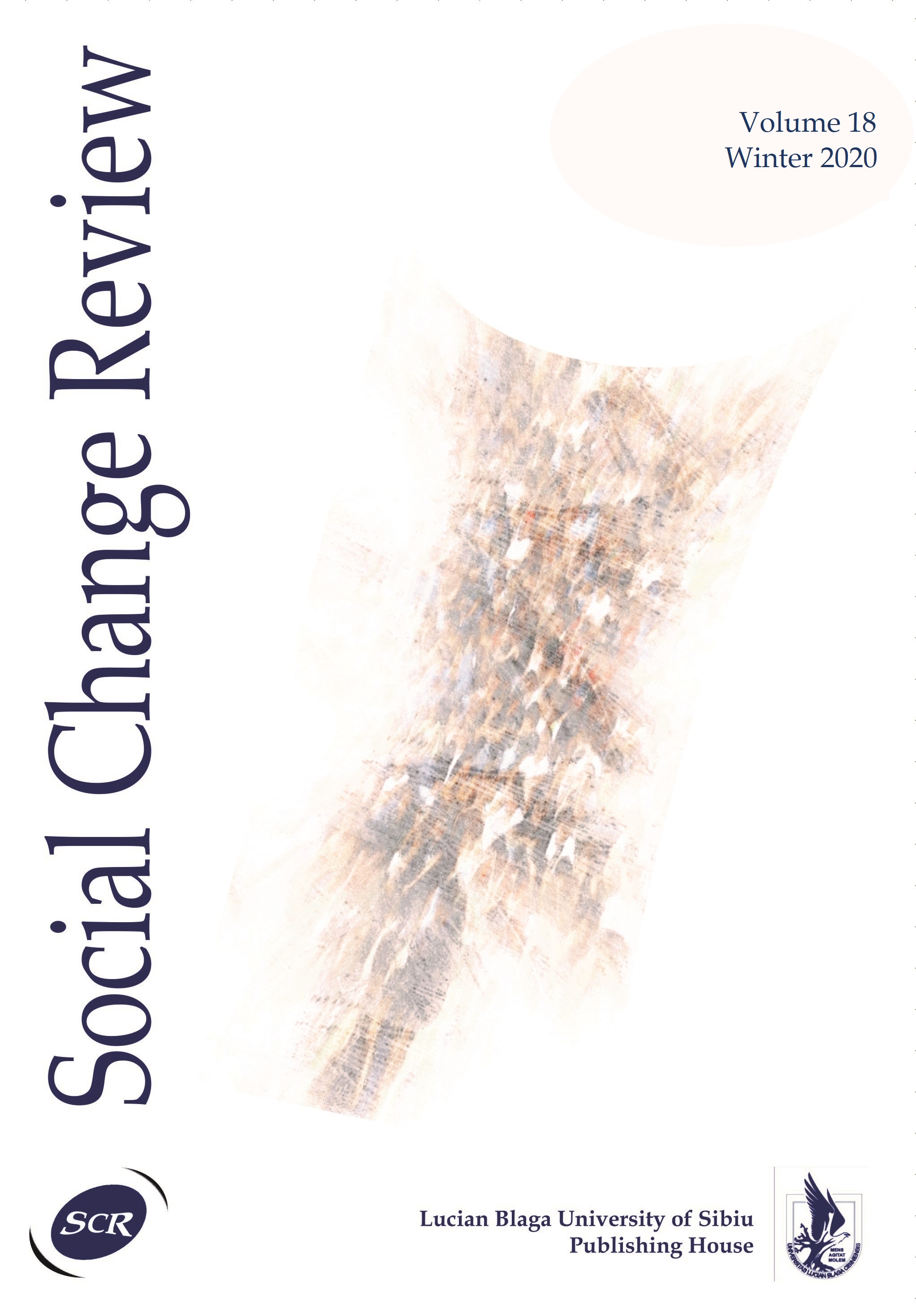
Drawing on interviews with key informants and seasonal workers in Germany, Spain, Italy, Austria and the UK, and on non-participant ethnographies, this paper demonstrates that, despite various limitations associated with work in the agriculture sector, migrants strategically choose the times and destinations of their trips abroad, taking into account a variety of factors, including family commitments, economic goals at the origin, wages and working conditions, health issues and welfare opportunities. The findings illustrate that, depending on their commitments and economic objectives, Romanians who work in agriculture develop different mobility practices. While some work abroad only occasionally, when they need to supplement their home-country income, others engage in circular migration or extend the periods of time they spend abroad. In host countries, most workers try out various jobs and typically get involved in repeated migration once they have found a suitable arrangement. Some workers combine seasonal work in one or more countries of destination, over the course of the same year, with the aim of securing income for longer periods of time, while others opt for long-term migration or move into sectors that offer better opportunities.
More...
The COVID-19 pandemic brought into focus how nation-states manage to shut down borders while maintaining flexible labor recruitment. This challenging situation provoked more public discussion around inequalities within the agricultural and agrifood sector. However, reflections around labor conditions have remained limited. I argue that instead of merely pointing to certain aspects of the current labor conditions and demanding more regulations, a different point of departure is urgently needed. Through a genealogical approach to recruitment and rotation, this article aims to further politicize the discussion around the current recruitment infrastructure in the agricultural and agrifood sectors in Europe. I do this with my research on labor migration from Moldova to the European Union and Switzerland, where I consider the hypermobile life trajectories of workers within the agricultural sector. I am interested in the structures, goals and biopolitical implications as well as the involved ideologies that accompany the laws and regulations of the legal framework of such hypermobility between “Eastern” and “Western” Europe. I show how the involved citizenship laws and circular migration policies reveal entanglements through time and space that lead to neocolonial and post-Soviet regimes of labor control within Europe.
More...
The paper puts the food regime model, as elaborated by scholars such as Harriet Friedmann and Philip McMichael, into articulation with the analysis of migration/border regimes, as proposed by critical migration scholars. If by now it is well established that the policies that regulate the mobility of migrant labour play a crucial role in enabling capitalist accumulation in contemporary global agriculture, few analyses have delved into the actual mechanisms which make this possible, and into their histories. The argument is developed by reference to the Italian case, showing how subsequent waves of substitution of Italian labourers with migrants, that began in the 1980s, have followed different patterns. It argues that these can be understood by reading them against the grain of the changes accruing in the transnational migration regime. Thus, precarisation and segmentation of the labour force in the farming sector are shown to have been actively fostered by policies which have made of undocumented or differentially included labour one of the pillars upon which globally integrated food production has relied for the past three decades. Whilst based on national-scale statistics and secondary literature, the analysis also builds upon a sustained presence and engaged participant research in some of the Italian agroindustrial enclaves that record the highest presence of migrant labour.
More...
In recent times, the win-win outcomes of circular migration for all the involved stakeholders have come under a thorough academic focus and have increased in social-political importance for both the host and home countries, not to mention the migrants themselves. Given the inherent importance of the issue for countries’ public policies, it comes as no surprise that attention is often paid to the intrinsic pros and cons for both host and home societies. What might ponder, however, is the fact that the main actors of this process, the circular migrants, gain rather limited attention or scrutiny. The main aim of this article is therefore to unveil what actually happens with circular immigrants in the host countries, and which pattern – integration or marginalization – shapes their destiny in the host society. This question will be investigated through a case study of Ukrainian immigrants in Spain. The outcomes of this applied research into the sociology of the circular migration demonstrate that both concepts are not mutually exclusive, and do not fundamentally preclude integration.
More...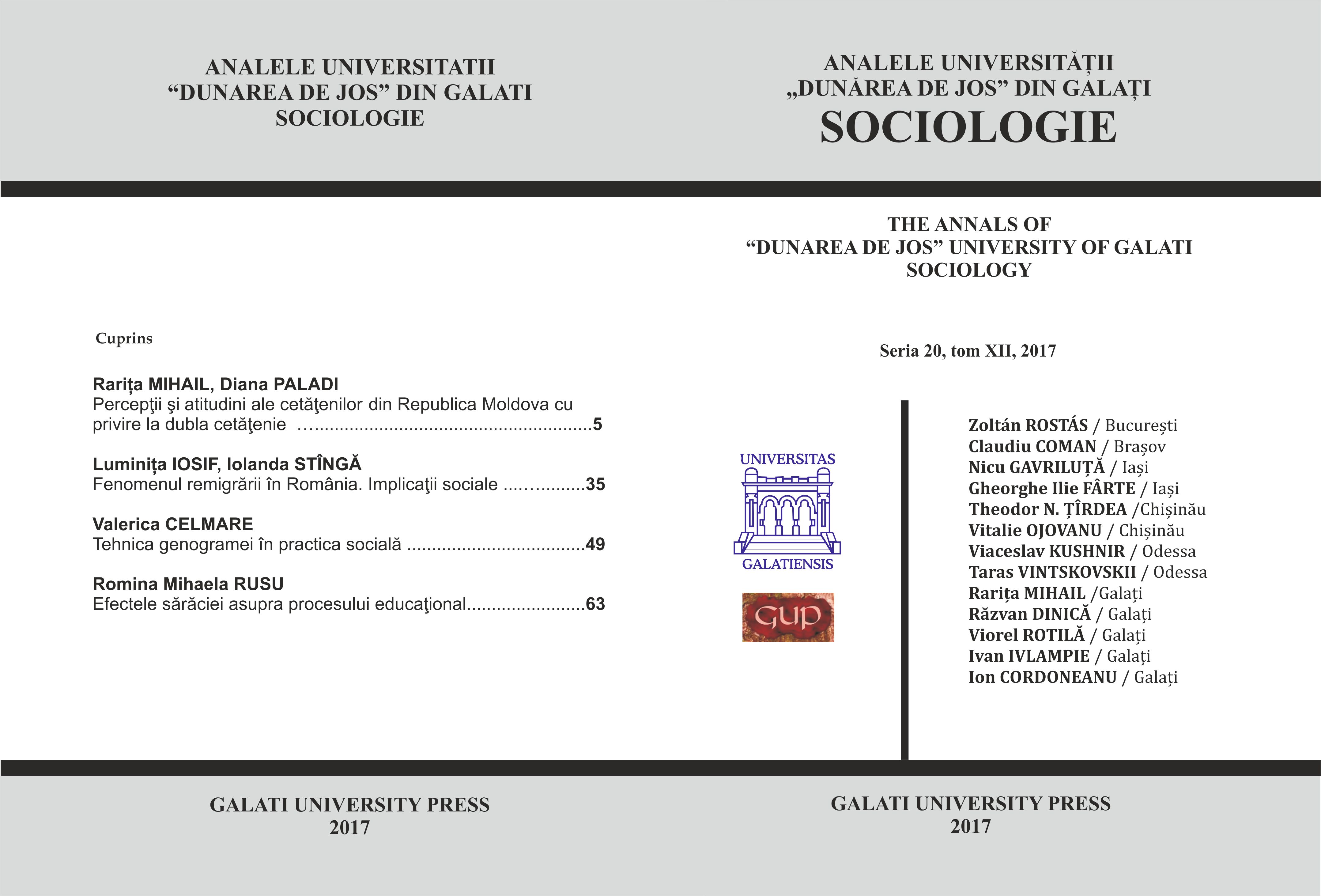
This paper analyzes the process of remigration in rural areas and the impact of social services offered by public and private institutions for the integration of school children into society. Official statistics show an increase in the number of school children returning to Romania, which represents a challenge for local authorities. The study is based on the socio-economic and educational analysis of 10 cases registered in the social assistance units in the rural area, through which it was wanted to highlight the intervention mechanisms.
More...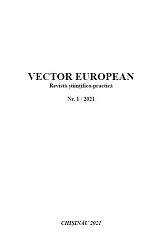
The paper is an analysis of the migratory path of immigrant Moldovan adolescents from Italy, emphasizing the impact of leaving the country of origin on social inclusion, the specificity of life after family reunification and the new beginning in the context of the host country. Highlights the difficulties of young people, related to separation from loved ones, meeting with the new condition of "immigrant" and rebuilding family relationship.
More...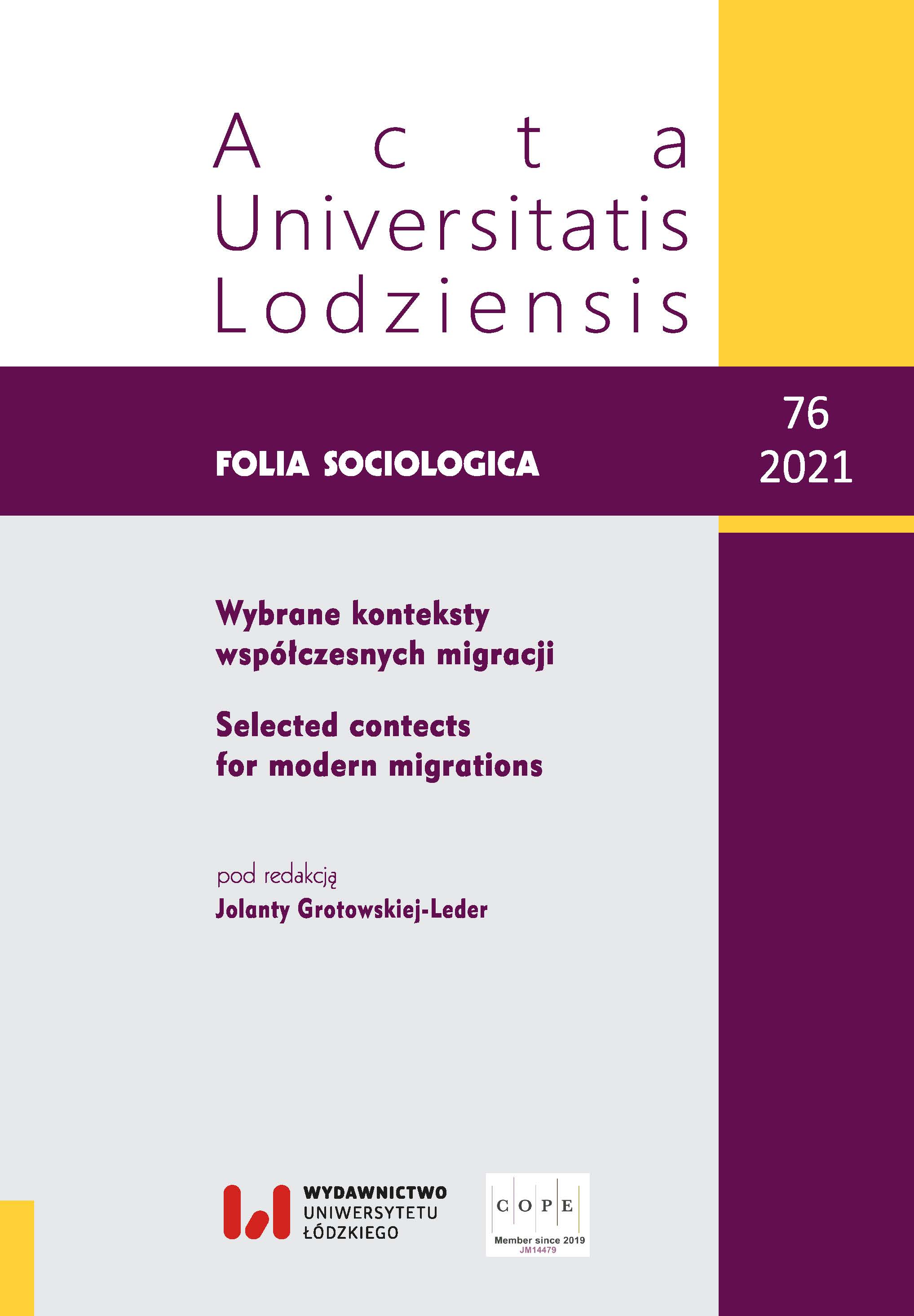
The article attempts to use the concept of social anchoring to analyse the phenomenon of temporary migration of Ukrainians working in Poland in the second decade of the 21st century.The concept is relatively new in Polish migrant literature and refers to the process of searching for life’s backrest points – anchors, allowing individuals to achieve psychosocial stability and to function effectively under new conditions. The collective of Ukrainians constitutes an interesting research category due to the fact that Poland is their main place of choice for migration both for a limited period of time – short (about one year), a certain long (several years) and for permanent residence. In its post-war history, Poland experiences for the first time contact with a mass migrant, not only taking up gainful employment, but settling with his family and attempting integration and assimilation into Polish society. Although Poles have fiercely opposed refugees from Syria or Africa, they hardly see Ukrainian migration as a threat to themselves. With an empirical base in the form of 36 interviews conducted among Ukrainian citizens employed in Poland in 2019, we would like to try to describe the differences in the projections of Ukrainian migration in the context of declarations on staying/leaving the country of migration after achieving the targets.
More...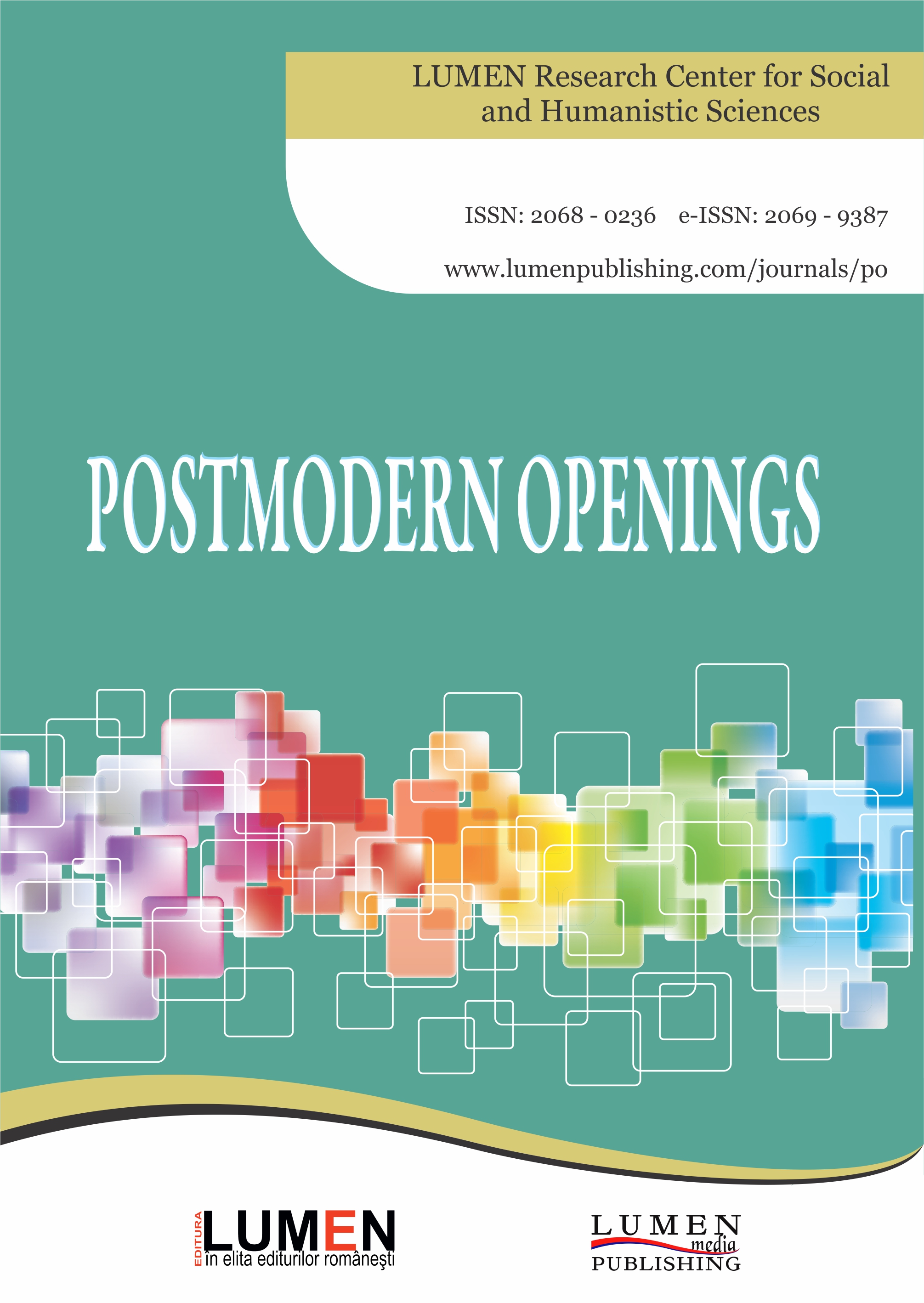
Migration is an issue fervently debated in various scientific fields (history, sociology, political science, security studies, etc.). Postmodern literature on migration goes beyond hundreds of titles, monographs and articles. Discourses on public migration policies and sometimes policies themselves all too often tend to be based on seemingly trivial correlations, but which have no significant empirical basis. The reality is much less simple and requires a nuanced analysis to interpret it accurately. The emotions and attention aroused in the EU and US public debates on migration issues reveal an identity crisis and only widen the gap between potential evidence-based long-term policies and short-term migrant policies. The article aims to analyse, from a theoretical perspective, the content of the migration phenomenon in the contemporary globalized society, focusing on a series of legal elements, without ignoring the social and economic implications of the phenomenon
More...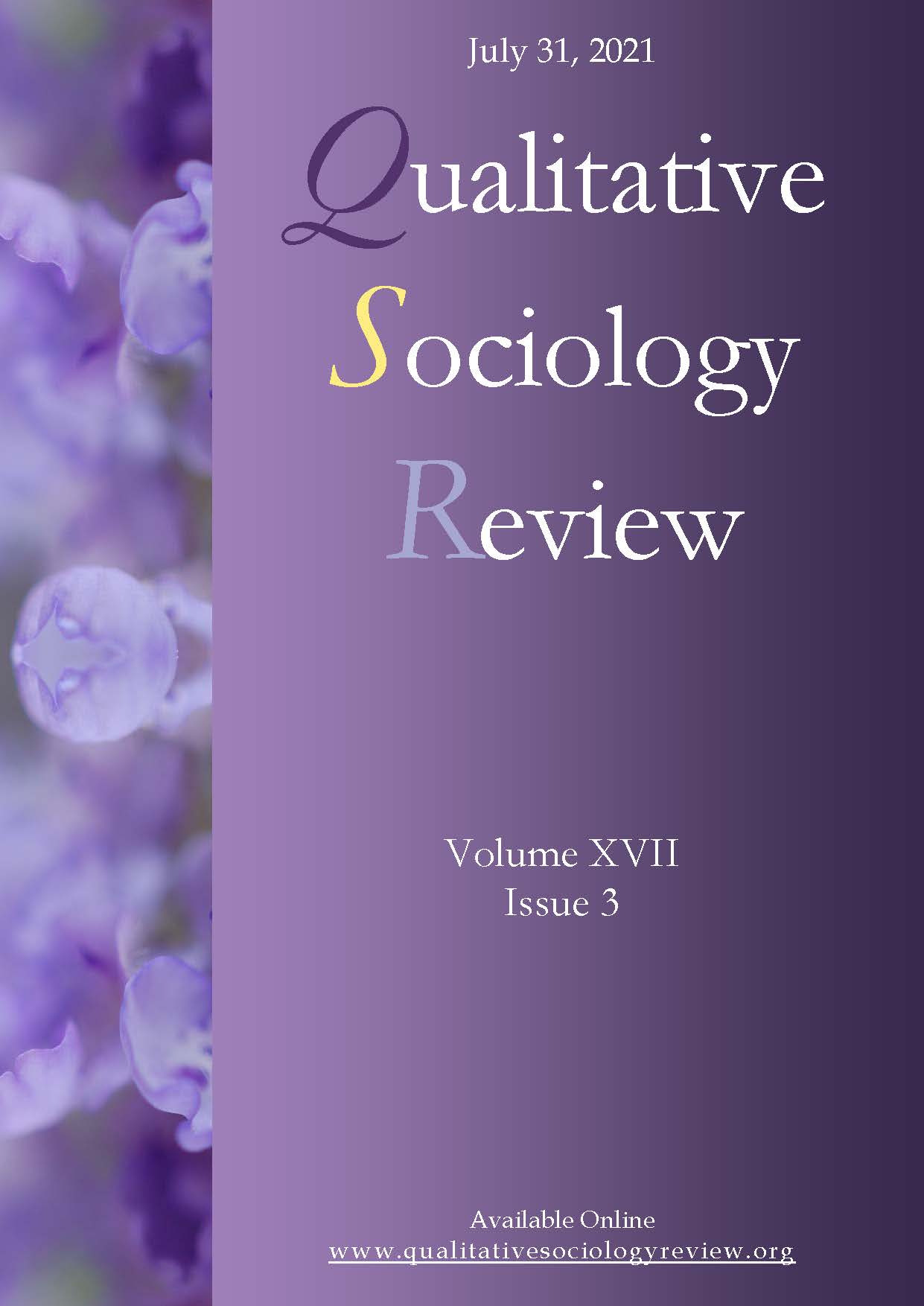
Social studies point out the unequal conditions for moving or staying, internally or internationally, that young people from different social sectors face in their biographies. In this article, we analyze the migratory experiences of young people from popular sectors of the Metropolitan Area of Buenos Aires, Argentina. To do that, we put into dialogue recent studies on migration and proposals of the sociology of individuation and the new mobility paradigm. We approach the individuation processes of these young people through the qualitative analysis of their biographical narratives in which their migration experiences emerged as turning points in their lives. The article argues that young migrants from popular sectors draft their agencies and shape themselves as individuals by mobilizing material and symbolic supports and accessing different social shock-absorbers that allow them to cope with three major social challenges in their migratory processes: the socio-labor trial; the family trial, and the identity trial. By identifying the discontinuities and the common evidence present in the migratory experiences of these young people and their families, the paper ends highlighting the articulations among coercions, elasticities, and strategies that these youth migrant mobilize, individually and collectively, around themselves and others, through border-links to create shelters and deal with such challenges.
More...
The Decision to Confiscate German-Owned Property (1944), the Law on Agrarian Reform and Colonization (August 1945) and the Decree on the Implementation of Veterans’ Settlement (1945) provided a legal framework for the colonization of Vojvodina. People from the outback regions applied for colonization in large numbers since it was believed that migration guaranteed deliverance from decades of dearth and poverty. The journey of the colonists was fraught with numerous difficulties, primarily due to poor organization and frequent changes of plans. The distribution of houses, cattle, and inventory was done by local commissions. The bias of these commissions was obvious. Thus, the division of houses and inventory was accompanied by great social injustices. Some families were housed in buildings with electrical installations, while others had to settle into houses without floors. Such actions caused indignation and revolt among the colonists. Dissatisfied with their new life, as many as 4,000 families decided to return. Those who remained needed time to adapt to the new way of life. With time, big families disintegrated, the position of women improved, new work habits were developed, and neighborly relations became better.
More...